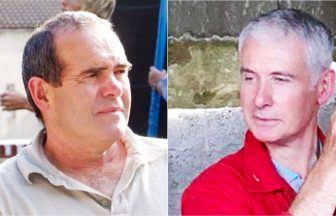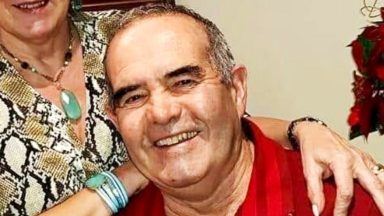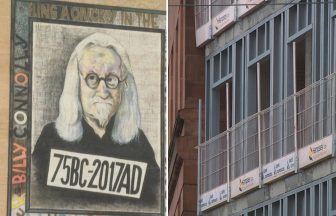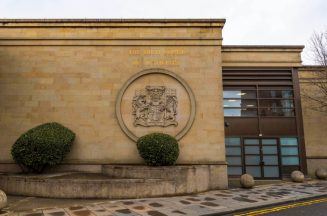A Glasgow man convicted for sending a “grossly offensive” tweet about Captain Sir Tom Moore hopes to take his case to the European Court of Human Rights.
Joseph Kelly, from Castlemilk, posted on Twitter that “the only good Brit soldier is a deed one, burn auld fella, buuuuurn” on February 3 last year – the day after Sir Tom’s death.
Kelly is now taking his case to Strasbourg to argue that his tweet should be categorised as freedom of expression rather than a criminal offence.
Sir Tom, who captured the hearts of the nation with his fundraising efforts during the first coronavirus lockdown, died in hospital after testing positive for Covid-19.
Kelly’s tweet was visible for 20 minutes, before he began to receive threats directed against him and his family and deleted it.
The tweet had been visible long enough for someone to report him to the police. The Crown Office pursued Kelly and decided prosecution was in the public interest.
Kelly was convicted of contravening the Communications Act 2003, section 127(1)(b), which makes it a criminal offence to make an electronic post that is “grossly offensive”.
The charge said Kelly made a post to the public that was “grossly offensive or of an indecent, obscene or menacing character, and that did utter offensive remarks about Captain Sir Tom Moore, now deceased”.
Kelly was labelled an “example case” to deter others from “pressing the blue button” and posting allegedly offensive content.
But a crowdfunding campaign has been set up by the Free Speech Union (FSU), a mass membership organisation that advocates freedom of speech, to raise funds in support of Kelly’s legal case.
Toby Young, general secretary of the Free Speech Union, told STV News: “What Joseph Kelly said was undoubtedly offensive, but we don’t believe anyone should be prosecuted for being offensive.
“This out-of-date law is about to be repealed in England and Wales and if this appeal is successful, I cannot see it remaining on the statute books in Scotland for much longer.”
The FSU say Kelly was forced to stop working as a result of death threats that he received after posting the tweet.
They also say the 36-year-old is currently on personal independence payments, a benefit for people who need help with daily activities or getting around because of a long-term illness or disability.
“This case goes beyond obtaining justice for Joe, it is about challenging the arbitrary use of power to interfere with lawful free speech and halting the development of blasphemy law by another name,” the FSU said.
“This case goes beyond individual justice for Joe Kelly. It is about ensuring this “deterrence” (i.e. “chilling effect”) on free expression does not materialise.
“And it is about ensuring Scotland is not left behind as the only country within the UK which maintains a legal concept (“grossly offensive”) in the regulation of messages sent on public communication systems which is, ironically, in absolute antithesis to the Enlightenment values that Scotland brought to the world.”
Roddy Dunlop KC, dean of the Faculty of Advocates, has backed the appeal as a test of the boundaries where being offensive should be considered illegal.
He tweeted: “The tweet was disgusting, in my opinion. But we are at the very sharp edge of where the merely offensive becomes an actual offence. A case to watch for sure.”
Kelly was found guilty of sending the tweet following a trial at Lanark Sheriff Court in January. He was then handed a community payback order when he returned to court for sentencing in March.
Sheriff Adrian Cottam told Kelly he passed the “custody threshold” but there is a presumption against prison if there is an alternative.
He sentenced him to a community payback order comprising 18 months of supervision and 150 hours of unpaid work and said the punishment should act as a deterrence to others.
Terra Firma’s Fred Mackintosh KC and Compass Chambers’ Cameron Smith, are acting his counsel for Kelly in his appeal to Strasbourg.
They will argue that a statement like the one made by Kelly – by means of a public telecommunications system – should not need to have artistic or political meaning for it be protected by the right to free speech laid down in the European Convention on Human Rights.
Captain Moore walked 100 laps of his garden before his 100th birthday, raising more than £32m for the NHS, and was knighted by the Queen in recognition of his efforts.
In acknowledgement of his efforts, he was knighted by the Queen during a unique open-air ceremony at Windsor Castle in summer 2020.
Follow STV News on WhatsApp
Scan the QR code on your mobile device for all the latest news from around the country



























